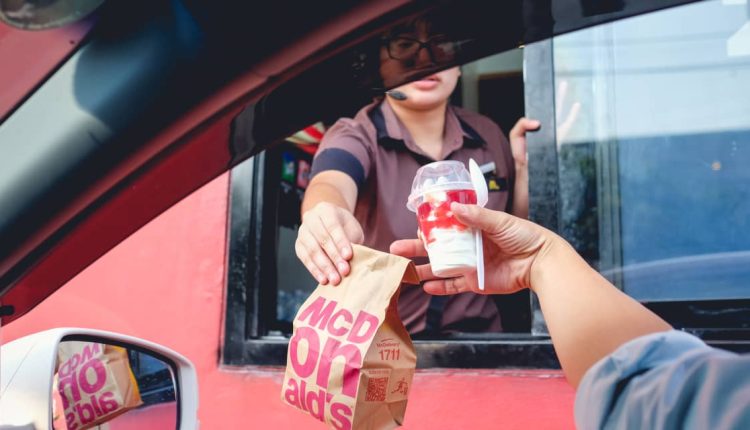A new labor regulation announced Thursday will make it easier for workers and unions to hold some businesses accountable in labor disputes, by broadening the definition of when a company can be considered a joint employer with another business. The sectors expected to be most affected by the change are franchise businesses and companies that use temporary staffing agencies and contractors.
The revised joint-employer rule was announced by the National Labor Relations Board and applies to workers’ rights to join unions, bargain collectively, and protest work-related conditions under federal law. The new standard replaces a Trump-era regulation on joint-employer status, adopted in 2020, which said a business needed to have “substantial direct and immediate control” over job conditions to be considered a joint employer.
Under the new rule, a business could be considered a joint employer whether it has direct or indirect control over one or more “essential” working conditions. Those conditions could include wages, scheduling, assignment of duties, and the safety and health of workers.
Franchisers such as
McDonald’s
have flatly opposed the rule change, first proposed more than a year ago. Most U.S. workers at McDonald’s restaurants are employed by franchisees, the small-business owners that operate individual locations. McDonald’s has said the arrangement is fundamental to its franchising contracts: franchisees pay fees to the company and accept liability for employment matters, and in return McDonald’s provides the franchisees its world-famous system for running restaurants.
As part of that system, McDonald’s gives detailed instructions to franchisees on how the food is made and customers are served, and requires them to adhere to certain brand standards. Labor groups have argued that such mandates by franchisers can shape job conditions, and, accordingly, workers who unionize should be able to engage in collective bargaining not just with a franchisee, but with a corporate franchiser.
It’s become a more politically divisive issue over the past decade. The majority of the NLRB’s five-member board usually aligns with the party of the current president. During the Obama administration, the board broadened the joint-employer standard, and then narrowed it during the Trump years with the 2020 rule.
In comments to the NLRB last December, McDonald’s said there was “no question” the company was not a joint employer under the 2020 rule. But the proposed changes increased the risk that any franchiser could be held liable as a joint employer, the company said. The agency’s proposal would “destroy the franchise model,” McDonald’s wrote.
McDonald’s did not immediately respond to a request for comment Thursday.
Morningstar analyst Sean Dunlop says he still expects unionization efforts to “remain muted” across the restaurant industry, pointing out that there wasn’t a “discernible uptick” in unionization rates when the joint-employer standard was broader between 2015 and 2017.
“Restaurant workers skew younger, turnover is often north of 100%—that is, tenure is typically less than a year—and many workers are temporary or seasonal,” Dunlop told Barron’s by email. “That combination of factors renders unionization in the restaurant industry—currently around 2%, against 10% across broader nonfarm industries—uniquely difficult.”
On Thursday the agency said the 2020 rule made it easier for businesses to avoid a finding that it was a joint-employer. The new standard reflects a “legally correct return to common-law principles and a practical approach to ensuring that the entities effectively exercising control over workers’ critical terms of employment respect their bargaining obligations” under federal law, said NLRB Chairman Lauren McFerran in a statement.
Companies are not automatically designated as joint employers under the new rule. Rather, the NLRB “will still conduct a fact-specific analysis on a case-by-case basis to determine whether two or more employers meet the standard,” McFerran said.
The new rule takes effect Dec. 26 and will only apply to cases filed after that date, the agency said.
The International Franchise Association called the new rule “overreaching and unworkable,” and said it could lead to increased costs and more litigation for franchised businesses.
“Today’s final joint employer rule solidifies that this NLRB is fundamentally hostile to Main Street business owners,” said Michael Layman, IFA senior vice president for government relations and public affairs.
The trade group renewed its call Thursday for members of Congress to nix the rule through the Congressional Review Act, which enables lawmakers to overturn an agency regulation. Such a resolution could still face a veto by President Biden.
The U.S. Chamber of Commerce also said it opposes the new rule and “will carefully evaluate our options going forward, including litigation.”
Write to Catherine Dunn at [email protected]
Read the full article here

